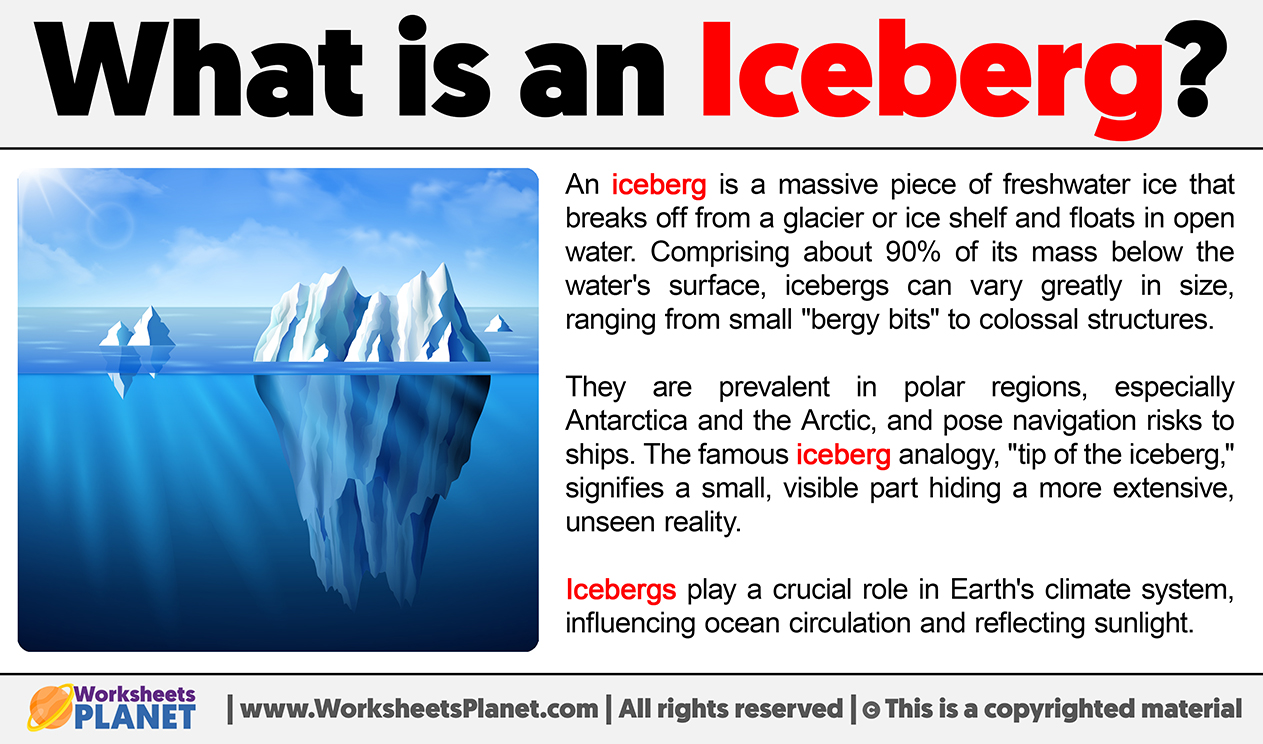An iceberg is a massive piece of freshwater ice that breaks off from a glacier or ice shelf and floats in open water. Comprising about 90% of its mass below the water’s surface, icebergs can vary greatly in size, ranging from small “bergy bits” to colossal structures.
They are prevalent in polar regions, especially Antarctica and the Arctic, and pose navigation risks to ships. The famous iceberg analogy, “tip of the iceberg,” signifies a small, visible part hiding a more extensive, unseen reality.
Icebergs play a crucial role in Earth’s climate system, influencing ocean circulation and reflecting sunlight.


